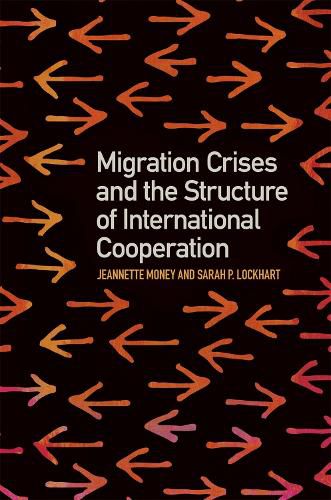Readings Newsletter
Become a Readings Member to make your shopping experience even easier.
Sign in or sign up for free!
You’re not far away from qualifying for FREE standard shipping within Australia
You’ve qualified for FREE standard shipping within Australia
The cart is loading…






Although international cooperation on migration is often promoted, scholars have been unable to arrive at a consensus about the extent of cooperation in the current system. Under what conditions does international cooperation on migration arise, and what shape does it take? These questions are important because migrants are often vulnerable to human rights abuses during their journeys as well as in the country of destination, and international cooperation represents one mechanism for reducing this vulnerability.
Jeannette Money and Sarah P. Lockhart ask these questions as they examine the patterns of migration flows during the post- World War II period, with particular attention to crises or shocks to the international system, as in the case of migration following the recent conflicts in Afghanistan and Syria. Their analysis makes several important contributions to this debate. First, they explain how the broad pattern of migration in the contemporary era-generally from poorer, less stable countries to wealthier, more stable countries-fosters cooperation that is predominantly bilateral, when cooperation does in fact occur. Second, they argue that cooperation is unlikely under most circumstances, because countries of destination prefer the current system, which privileges their sovereignty over migration flows. Finally, they posit that cooperation may arise under three conditions: when the costs of maintaining the status quo increase, when countries of origin locate a venue where their numbers allow them to control the bargaining agenda, or when migrant flows tend toward reciprocity.
$9.00 standard shipping within Australia
FREE standard shipping within Australia for orders over $100.00
Express & International shipping calculated at checkout
Although international cooperation on migration is often promoted, scholars have been unable to arrive at a consensus about the extent of cooperation in the current system. Under what conditions does international cooperation on migration arise, and what shape does it take? These questions are important because migrants are often vulnerable to human rights abuses during their journeys as well as in the country of destination, and international cooperation represents one mechanism for reducing this vulnerability.
Jeannette Money and Sarah P. Lockhart ask these questions as they examine the patterns of migration flows during the post- World War II period, with particular attention to crises or shocks to the international system, as in the case of migration following the recent conflicts in Afghanistan and Syria. Their analysis makes several important contributions to this debate. First, they explain how the broad pattern of migration in the contemporary era-generally from poorer, less stable countries to wealthier, more stable countries-fosters cooperation that is predominantly bilateral, when cooperation does in fact occur. Second, they argue that cooperation is unlikely under most circumstances, because countries of destination prefer the current system, which privileges their sovereignty over migration flows. Finally, they posit that cooperation may arise under three conditions: when the costs of maintaining the status quo increase, when countries of origin locate a venue where their numbers allow them to control the bargaining agenda, or when migrant flows tend toward reciprocity.